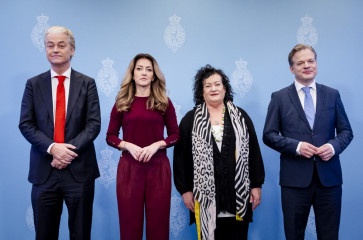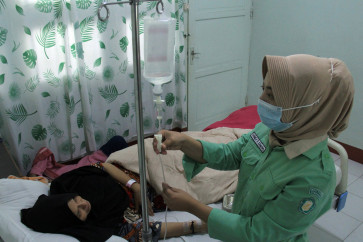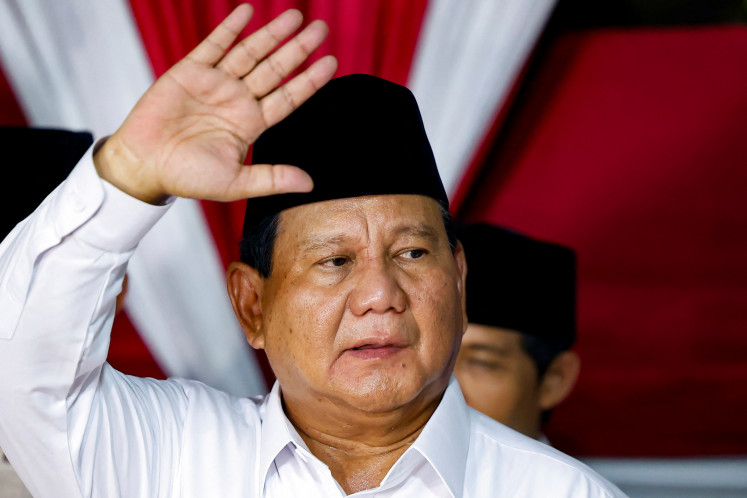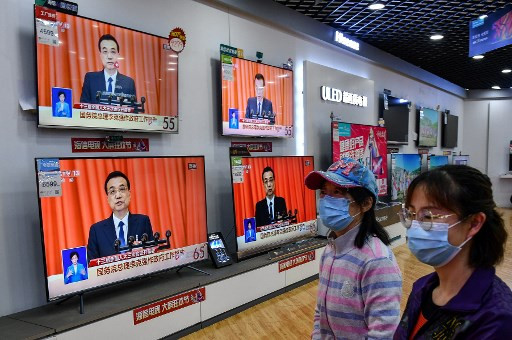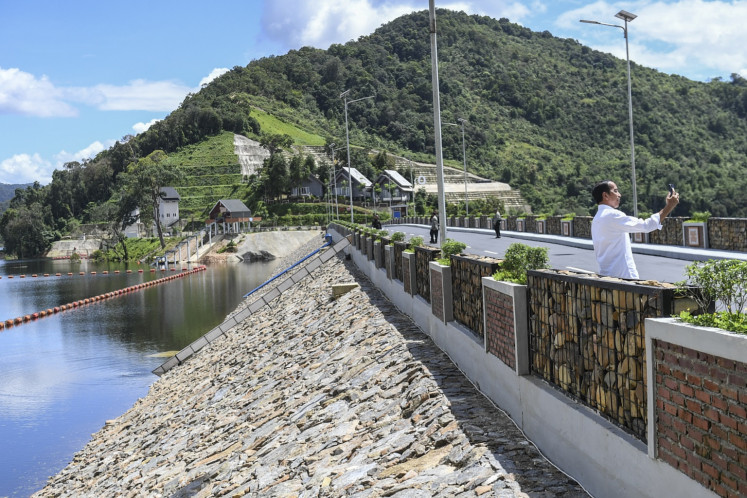Use local banks to buy arms, govt told
A scholar has urged the government to use local banks instead of foreign financial institutions to buy weapons for the armed forces
Change Size

A scholar has urged the government to use local banks instead of foreign financial institutions to buy weapons for the armed forces.
"The government does not allow us to use our national banks to buy weapons," said Makmur Keliat of the Parahyangan Catholic University in a seminar here Saturday.
"I don't know why this is the case. Some regulations are very strange," he said.
Using foreign financial institutions has been costly for the country.
"Foreign bank interest rates are definitely higher," he said.
He said he suspected money laundering was behind the strange regulation.
"The foreign financial institutions might be taking money transferred from Indonesia," he said.
The one-day seminar on The Irony of the World: The Poor Subsidizing the Rich featured seven other speakers.
Bambang Ismawan of Bina Swadaya non-governmental organization said we should "cease to see the poor as the have not but as the have little".
Put together, this "little" can be enormous.
Bambang said the poor's money amounted to Rp 1,500 trillion (US$163.5 billion) in government and private banks.
Asked if part of that money could be used to further help the poor, he said it was possible with the right attitude.
"In Bangladesh they say 'I want to do it and I do it'," he said, referring to Mohammad Junus's Grameen Bank that uplifted the lives of millions of poor Bangladeshis through micro lending.
The Bangladeshi government set up some funds to finance institutions like the Grameen Bank and others in the country. The Nobel laureate visited Indonesia recently and met with the President and his ministers, but nothing has come out of the meeting.
"It was not a question of funds. The government considers working for millions of poor people a tedious job," he said.
Almost half of Indonesia's population of 235 million live below the poverty line, according to the World Bank. Indonesians make up 5 percent of the world's poor.
The government has provided numerous subsidies to alleviate poverty in Indonesia.
But Donatus Marut of the International NGO Forum on Indonesian Development said the term "subsidy" was a misnomer, since it was the government's obligation to protect its citizens.
"It is not the right term. Subsidies given by the government are usually to help the market," he said.
Aleksius Jemadu of Parahyangan University said there had been no fundamental change in the global economy since the colonial era in the sense the poor are still subsidizing the rich.
Developing countries transferred $178 billion to the developed world between 1984 and 1990, he said.
"But we can't blame donor countries or creditors," he said.
Citing Johan Galtung, he said self-reliance couldn't be built from the outside.
"Indonesian people themselves should make it happen within their country," he told an audience of 400, most of them university students.

